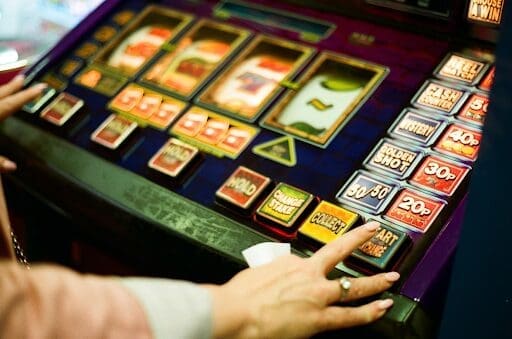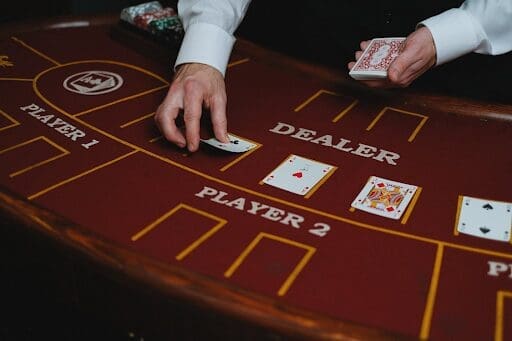The debate over chance and skill has been part of casino play for as long as the games have existed, and it continues in the online space. Some titles run entirely on luck, while others allow room for strategy and careful decision-making. This difference matters to many groups. Players think about fairness and how much control they have, regulators look at rules and definitions, and investors follow where the profits may lie. In the following sections, both sides are explained clearly, showing where luck ends and skill begins.

The Role of Probability in Online Gambling
In casino play, chance refers to outcomes completely outside the player’s control. Every round is shaped by probability, and no strategy can alter it. That is why games such as slot machines, roulette, lotteries, or bingo are placed in this category. When a player presses the spin button on a slot or buys a lottery ticket, the odds remain the same each time. Although patterns might seem to appear, they do not influence what happens next.
In the online setting, this randomness is maintained through Random Number Generators (RNGs). These systems create results that cannot be predicted or manipulated, which helps guarantee fairness. At the same time, they also include the house edge, making sure the operator keeps an advantage over the long term. The same principle can be seen in the Plinko game, where a ball bounces through pins and lands in a random slot. Each round is independent, and the final result depends solely on chance.
Strategy and Decision-Making
Skill-based play relies on strategy, probability management, and knowledge to influence outcomes. These games differ from luck-driven titles because player choices can change the course of play. The best-known examples include:
- Poker: Winning requires studying the competition, evaluating probabilities, and controlling wagering. Tournaments also tend to emphasize that long-term outcomes are more skewed towards talented players rather than regular participants.
- Blackjack: Following basic strategy charts can lower the house edge, while card counting (where legal) gives an extra advantage.
- Sports betting: The scientific study of teams, performance of players, and statistical data will facilitate making more informed bets.
Even with preparation, uncertainty never disappears. A strong poker hand can still lose, and unexpected events can overturn predictions in sports. This is why bankroll management, discipline, and a long-term view are essential for players who focus on skill-based formats.
Balance Between Chance and Skill
Some casino games lie between the extremes of pure luck and pure strategy. In poker, the cards are dealt randomly, but the players’ decisions, whether to fold, raise, or bluff, play an enormous role in most rounds. Blackjack is much the same. Players may begin each hand by drawing randomly, and the players who use probability-based strategies can always reduce the house edge. In sports betting, something unpredicted might happen and alter everything, yet data analysis and preparation still enhance decision-making.
Short-term results are normally determined by chance. Even in blackjack and poker, one poor hand can ruin the best laid plans. In the long term, however, strategy and discipline are decisive. Bankroll management is the key to this process, and it can assist players in managing variance without losing their heads. In online casinos, this duality can be seen by having not only titles dependent on luck, such as slots and roulette, but also those in which skill can affect the final result.
Regulation and Industry Perspective
Regulators separate games of chance from those that depend on skill because this classification shapes licences, taxes, and operating rules. The approach is different across regions. In the UK, poker is handled as a chance-based game under gambling law. In some US states, poker is legally treated as a skill game. In Germany, slots are tightly controlled, while lotteries follow their own framework. Key regulatory differences include:
- Licensing requirements are usually stricter for chance-based titles
- Taxation levels can differ between lotteries, slot games, and poker
- Legality, since some countries ban chance-driven formats but allow betting tied to skill
Meanwhile, the market has introduced hybrid formats such as live game shows and interactive betting. These combine random results with player decisions, making it harder to apply the old rules.

Broader Implications for Different Audiences
The issue of luck versus skill is not limited only to the players. Competitive aspects are common to gamers, who are usually most concerned with formats where decision-making and strategy can affect outcomes. The balance between products based on chance and those based on skill is of interest to investors as these products appeal to various audiences, and determine the potential long-term levels of revenue. IT experts look at the technical aspect, with regard to the integrity of RNG systems, encryption techniques, and the issue of justice in online play in general. Athletes might find familiar ground in skill-based formats, as preparation, discipline, and consistent practice can eventually lead to better outcomes, although there is always uncertainty.
Closing Thoughts
Chance is a form of randomness, and skill is based on strategy and knowledge. Both contribute to the formation of results individually and sometimes jointly in a mixed format. With the appearance of new games and the changes in regulations, the debate concerning the point of luck and skill is not likely to cease. The various forms of play address different motives, with some sort of testing strategy and others to the chances. The only thing that is important is to establish some boundaries and make casino playing a regulated activity.